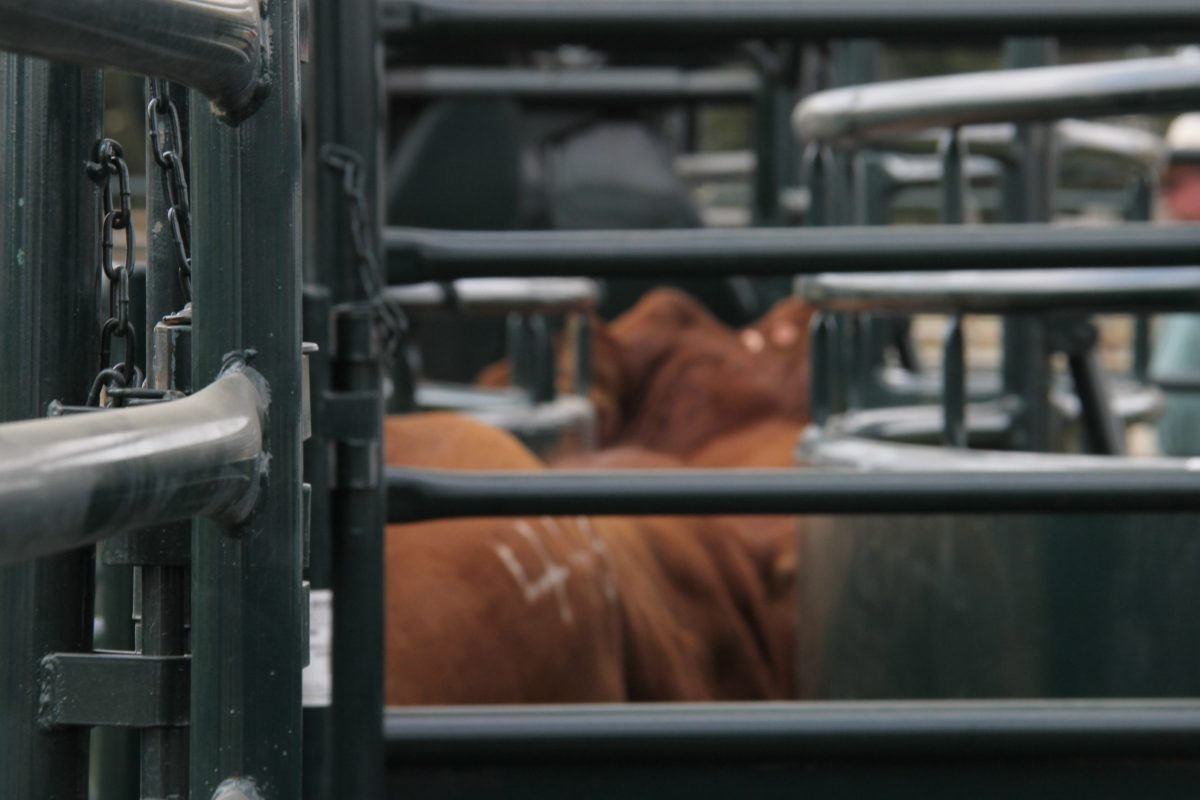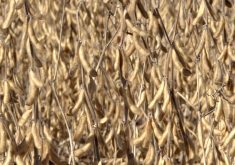U.S. agriculture giant Archer Daniels Midland raised the stakes in the global race for grains trading power on Friday, by seeking talks to buy smaller Australian shipper GrainCorp to build up its platform in Asia.
While several of Illinois-based ADM’s up-and-coming rivals have focused on big deals in North America, ADM CEO Patricia Woertz’s potential US$3 billion deal would add a vast network of elevators and terminals in the world’s No. 2 wheat exporter to its already key position supplying China.
After announcing it had bought an additional 10 per cent in GrainCorp early Friday, on top of a 4.9 per cent stake it already owned, ADM said it had approached the company in hopes of convincing the board to bless a full cash takeover.
Read Also

U.S. livestock: Cattle mixed on technicals, profit taking after tight supply rally
Chicago | Reuters – Chicago Mercantile Exchange cattle futures ended mixed on Wednesday as tight supplies and higher choice beef…
"GrainCorp is a well-managed company, and together with ADM would be better positioned to connect Australia’s farmers with growing global demand for crops and food, particularly in Asia and the Middle East," Woertz said.
GrainCorp said ADM had sought talks on a "potential transaction" but had not made a formal proposal. It has requested a share trading halt until next Tuesday and said the board will look at the proposal as well as other options to maximize value for shareholders.
The 10 per cent purchase comes at a time of dramatic consolidation in the global grains sector amid intense competition to feed fast-developing countries seeking food security.
A drought this year has hurt grains supplies from the United States and increased global supply anxiety as rising demand for soy and corn from China helps push up grain prices.
"Australia has an opportunity to be a good source as a food basket for Asia as Asia’s appetite for quality produce increases," said Akshay Chopra, portfolio manager at Karara Capital in Melbourne.
It also comes as the four "ABCD" firms that have dominated the global agricultural business for decades — ADM, Bunge, Cargill and Louis Dreyfus — are emerging from a period of dismal earnings, as tough new competitors and volatile markets fuelled by financial crises cut earnings.
Wheat in focus
The bid is not ADM’s first signal that it wants to bulk up and push ahead of less acquisitive rivals, such as Cargill, while seeking to fend off eager new challengers such as Glencore and Singapore’s Olam.
Nearly seven months ago ADM pulled out of the race to buy Canadian grain company Viterra, which was eventually bought by No. 1 global commodities trader Glencore in a C$6.2 billion deal.
In May, fifth-largest Japanese company Marubeni bought U.S. grain merchant Gavilon, whose owners included billionaire investor George Soros, highlighting the intensifying competition for a foothold in the North American supply chain.
Australia is a coveted market as the world’s second-largest wheat exporter with a stable government and policy regime, yet some traders who know ADM primarily as the top U.S. corn processor and a major producer of ethanol were surprised.
The deal "comes as a surprise because GrainCorp is largely in the grain elevator business," said Charlie Sernatinger, senior vice-president at ABN AMRO in Chicago.
GrainCorp operates seven of the eight bulk grain elevators in eastern Australia, handling as much as 60 per cent of the region’s wheat, barley, canola, chickpea and sorghum crops. It has about 20 million tonnes of storage at more than 280 inland grain handling sites, the company says.
The wheat market has come under intense focus this year after a drought devastated the crop in Russia, leading to speculation that Moscow would limit exports — like it did in 2010, rallying prices at the Chicago Board of Trade.
Ken Smithmier, a grains analyst with the HighTower Report in Chicago, said ADM’s purchase of GrainCorp could be a "smart, strategic" move at a time when wheat has been making inroads into the feed market in place of high-priced corn.
"We are seeing Japanese (livestock) feeders shift their corn-wheat ration. Wheat use is on the rise as it has become more popular as a feed over the last couple of years," he added.
ADM bought 22.8 million shares worth US$278 million, or 10 per cent, of GrainCorp before the market opened on Friday at A$11.75 a share — a 33 per cent premium to the share price close on Thursday. ADM said later that it had already acquired a 4.9 percent share, which had not been reported.
ADM already has a presence in Australia through its 80 per cent stake in German-based global grain handler Toepfer International, which purchases grains and pulses from Australian farmers for sale domestically and overseas.
That may raise concerns over consolidation.
"It will be interesting to see how this works as ADM owns a sizeable chunk in Toepfer which has big presence in Australia," said a manager with an international trading company who requested anonymity as he was not authorized to speak to the media.
Macquarie analysts said in a note published before ADM’s share purchase that Wilmar International and Bunge could also be potential buyers for GrainCorp.
ADM, which holds a 16 per cent stake in Wilmar, announced Thursday it had received regulatory approval for partnership deals with Wilmar in global fertilizer and European vegetable oil. The two companies on Thursday also launched a partnership in global ocean freight.
An investigation by Australia’s Foreign Investment Review Board will be triggered if ADM lifts its stake in GrainCorp to 15 per cent or more.
FIRB in July gave the green light to Glencore’s takeover of Viterra, which holds nearly all the grain storage capacity in South Australia after buying Australia’s ABB Grain in 2009.
Canadian fertilizer maker and farm products retailer Agrium bought AWB Ltd., Australia’s top bulk wheat
exporter, in 2010.
— Jane Wardell is Reuters’ deputy bureau chief for Australia and New Zealand, in Sydney. Karl Plume is a reporter for Reuters in Chicago.















